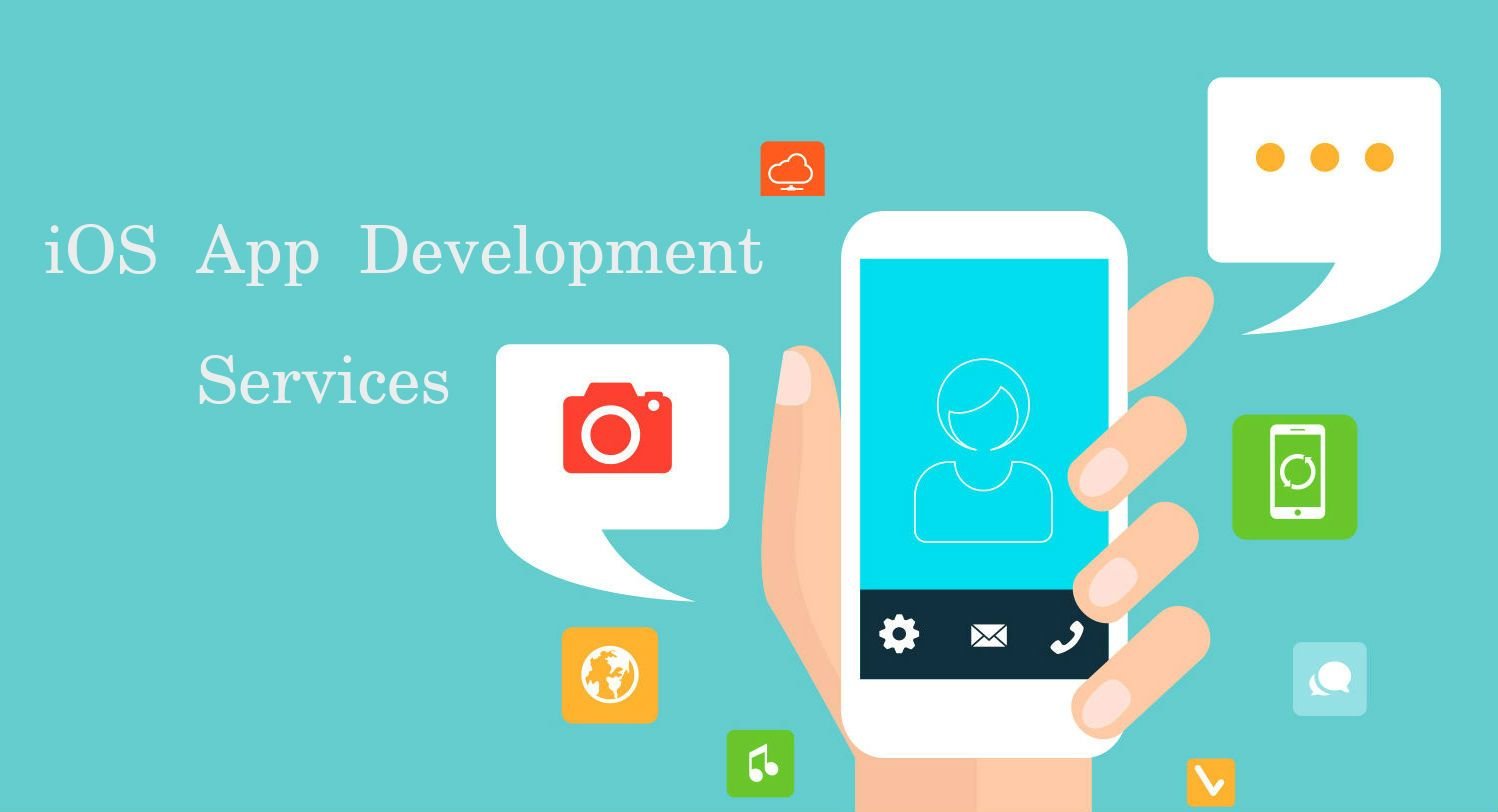iOS App Development: Revolutionizing the Digital Landscape
Discover how iOS app development is transforming the digital landscape, from innovative solutions to expert insights. Learn about types, challenges, and future prospects.

Introduction
In recent years, the world has witnessed an unprecedented surge in the demand for mobile applications. Among the frontrunners in this digital revolution are iOS app development company. These companies play a pivotal role in shaping the way we interact with technology, offering innovative solutions that cater to various needs and preferences. This article delves into the intricacies of iOS app development, exploring its significance, types, challenges, and future prospects.
Define the Topic
iOS app development refers to the process of creating applications specifically designed to run on Apple's iOS operating system, which powers devices such as iPhones, iPads, and iPod Touch. These apps are available for download through Apple's App Store and serve a multitude of purposes, ranging from entertainment and productivity to education and health.
Relevance and Importance
With the proliferation of smartphones and tablets, mobile apps have become an integral part of everyday life for billions of people worldwide. iOS, known for its user-friendly interface, robust security features, and seamless integration with other Apple devices, has emerged as a preferred platform for app development. As such, iOS app development companies play a crucial role in meeting the growing demand for high-quality, user-centric applications.
Types and Categories
iOS apps come in various types and categories, catering to diverse user preferences and requirements. Some of the most common types include:
Social Networking
Apps like Facebook, Instagram, and Twitter facilitate social interaction and networking on the iOS platform, allowing users to connect with friends, share updates, and discover new content.
Gaming
The App Store boasts a vast collection of games, ranging from casual puzzles to immersive multiplayer experiences. Popular titles like "Among Us" and "Fortnite" have garnered millions of downloads and generated substantial revenue for developers.
Productivity
Productivity apps help users manage tasks, organize schedules, and enhance efficiency. Examples include to-do lists, note-taking apps, and project management tools like Trello and Asana.
Entertainment
From streaming services like Netflix and Spotify to ebook readers and virtual reality apps, iOS offers a plethora of entertainment options to cater to every taste and interest.
Symptoms and Signs
Identifying the need for an iOS app involves recognizing certain symptoms and signs within the market or target audience. These may include:
Growing Demand
A surge in inquiries or requests for mobile app solutions indicates a rising demand within the market, signaling an opportunity for iOS app development companies to capitalize on.
Outdated Technology
Businesses or individuals using outdated or inefficient software systems may experience productivity issues or compatibility issues with newer devices, prompting them to seek iOS app development services for modern solutions.
Competitive Landscape
Observing competitors' successes or failures in the mobile app space can provide valuable insights into market trends, user preferences, and areas for innovation or improvement.
Causes and Risk Factors
Several factors contribute to the success or failure of iOS app development initiatives. Understanding these causes and risk factors is essential for mitigating potential challenges and maximizing opportunities.
Technical Complexity
iOS app development involves navigating a complex ecosystem of programming languages, frameworks, and design guidelines. Developers must possess the necessary skills and expertise to overcome technical challenges and deliver high-quality solutions.
Market Saturation
With millions of apps vying for users' attention on the App Store, standing out from the competition can be a daunting task. Companies must conduct thorough market research and develop unique value propositions to attract and retain users.
Changing Trends
The rapidly evolving nature of technology and consumer preferences means that app developers must stay abreast of the latest trends and adapt their strategies accordingly. Failing to anticipate or respond to shifting market dynamics can result in missed opportunities or obsolete products.
Diagnosis and Tests
Before embarking on an iOS app development project, thorough diagnosis and testing are essential to assess feasibility, identify requirements, and ensure compatibility with target devices.
Needs Assessment
Collaborating with stakeholders to understand their objectives, preferences, and constraints lays the foundation for a successful app development process. This may involve conducting interviews, surveys, or workshops to gather insights and align expectations.
Prototyping
Creating prototypes or mockups allows developers to visualize app functionality, user interface designs, and navigation flows before writing a single line of code. Prototyping tools like Sketch, Adobe XD, and Figma facilitate rapid iteration and feedback gathering.
Compatibility Testing
Testing the app on various iOS devices and operating system versions helps ensure compatibility and optimal performance across different screen sizes, resolutions, and hardware configurations. This may involve using emulators, simulators, or physical devices for comprehensive testing.
Treatment Options
Once the diagnosis is complete and requirements are defined, iOS app development companies can explore various treatment options to bring the app to life. These may include:
Native Development
Building native iOS apps using Apple's official programming language, Swift, and integrated development environment, Xcode, offers optimal performance, access to device-specific features, and seamless integration with Apple's ecosystem.
Cross-Platform Development
Alternatively, companies may opt for cross-platform development frameworks like React Native or Flutter, which allow for code reuse across multiple platforms while still delivering a native-like user experience.
Outsourcing
In some cases, businesses may choose to outsource iOS app development to third-party vendors or freelancers with specialized skills and resources. This can be a cost-effective and efficient way to augment internal capabilities or accelerate time-to-market.
Preventive Measures
To mitigate risks and ensure the long-term success of iOS app development projects, companies can implement various preventive measures and best practices.
Comprehensive Planning
Thorough planning and documentation, including project timelines, budgets, and milestones, help minimize uncertainties and keep the development process on track.
Agile Methodology
Adopting agile development methodologies, such as Scrum or Kanban, enables iterative development, frequent collaboration, and rapid adaptation to changing requirements or priorities.
Continuous Testing and Feedback
Implementing automated testing processes and soliciting feedback from users throughout the development lifecycle facilitates early detection of issues, improves product quality, and enhances user satisfaction.
Personal Stories or Case Studies
Real-life stories and case studies provide valuable insights into the practical applications and outcomes of iOS app development initiatives. Here are a few examples:
Case Study: Fitness Tracking App
A fitness enthusiast launches a custom iOS app to track workouts, monitor progress, and set goals. With features like GPS tracking, personalized workout plans, and social sharing, the app quickly gains traction among users seeking a convenient and motivating fitness solution.
Case Study: E-commerce Platform
A retail startup partners with an iOS app development company to create a mobile shopping app that offers seamless browsing, secure payments, and personalized recommendations. The app's intuitive interface and robust features result in increased sales, customer engagement, and brand loyalty.
Expert Insights
Industry experts and professionals offer valuable insights and advice on various aspects of iOS app development. Here are some notable quotes:
Dr. Sarah Johnson, Chief Technology Officer
"Successful iOS app development requires a deep understanding of user needs, technical capabilities, and market dynamics. By focusing on usability, performance, and innovation, developers can create impactful solutions that resonate with users and drive business growth."
Mark Smith, Senior iOS Developer
"The key to building great iOS apps lies in attention to detail and relentless pursuit of excellence. From elegant design to flawless functionality, every aspect of the app should reflect a commitment to quality and craftsmanship."
Conclusion
In conclusion, iOS app development company continues to shape the digital landscape, offering innovative solutions that enhance productivity, entertainment, communication, and more. By understanding the nuances of iOS development, embracing best practices, and staying abreast of industry trends, companies can unlock new opportunities for growth and differentiation in an increasingly competitive market.


 7pillars
7pillars 









